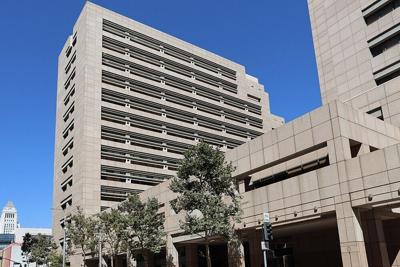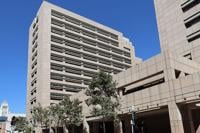
The Ronald Reagan State Building in downtown Los Angeles is home to the California Court of Appeal for the Second Appellate District
LOS ANGELES - A California appeals court has transformed a run-of-the-mill employment-claims decision into a stern warning to attorneys who file legal briefs using artificial-intelligence tools that contain fabricated case quotations or cases that are nonexistent.
In a Sept. 12 opinion, the California Second District Court of Appeal imposed a $10,000 fine on a Los Angeles plaintiff’s attorney, Amir Mostafav, for submitting an opening brief riddled with AI-generated fabrications. Of 23 case quotations cited in the brief, 21 were made up, according to the opinion.
The appeals court described the fine as conservative in the realm of legal AI snafus and noted that Mostafav’s conduct was not intentional and that he expressed remorse for the brief’s content.
The appeals court said no California court has addressed the issue of the creation of bogus legal authority by AI sources.
“We therefore publish this opinion as a warning,” the court stated. “Simply stated, no brief, pleading, motion or any other paper filed in any court should contain any citations – whether provided by generative AI or any other source – that the attorney responsible for submitting the pleading has not personally read and verified.”
The decision resulted from the appeal of a decision by the Los Angeles County Superior Court rejecting plaintiff Sylvia Noland’s causes of action against a Beverly Hills office building owner, Land of the Free L.P. Noland, who worked for the owner as a leasing agent, alleged that Land of the Free was liable for wage-and-hour violations, wrongful termination, breach of contract and penalties under the state’s Private Attorneys General Act (PAGA). The appeals court affirmed the Superior Court’s decision.
Mostafavi did not respond to a request for comment about the sanction – a copy of which was forwarded to the California State Bar. But the appeals court decision indicated that the attorney wrote the initial drafts of certain briefs but then “enhanced” them using the AI tool ChatGPT. He then submitted them to other AI platforms in a bid to assure accuracy, but Mostafavi acknowledged that he did not actually read the final versions of the briefs before filing them with the court.
The Judicial Council of California recently approved a task force’s proposed guidance to court staffs and judicial officers on the use of artificial intelligence. It allows courts to either bar the use of generative AI or to adopt a policy using the guidance by Dec. 15.
“The task force’s work includes the consideration of court staff or judicial officers using generative AI tools and how to guard against fabrications and other potential challenges of the technology,” the council’s spokesman, Blaine Corren, told the Southern California Record in an email. “... The task force is also reviewing the impact of artificial intelligence on the admissibility of proffered evidence in court proceedings.”
The Judicial Council task force’s report said generative AI offers potential benefits for the management and administration of California courts, but the panel cautioned that it poses significant risks. Those risks, however, can be addressed through court training and human oversight, the task force said.
Among the guidelines it proposed are prohibitions on submitting any confidential information or personal identifiers to public AI platforms, requirements that judicial officers who use AI tools personally assure the accuracy of the resulting material and a directive to remove biased or offensive content produced by AI tools.


